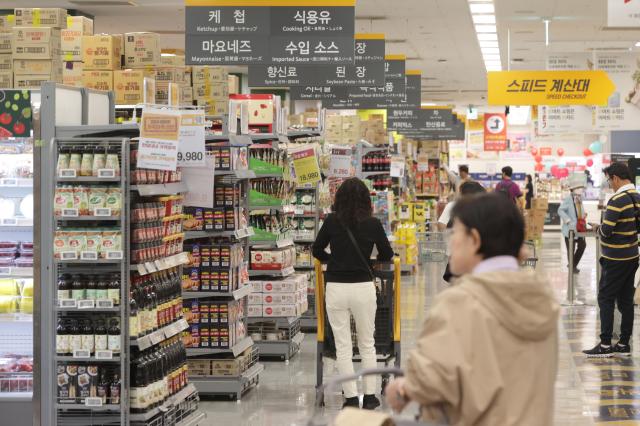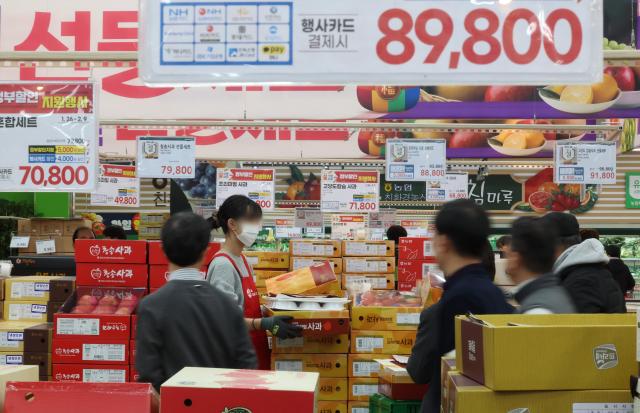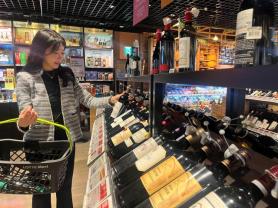
On May 27, the ward office in southern Seoul announced a plan to reduce the night curfew for big-box stores and so-called super-supermarkets within the district from the current eight hours to one hour beginning in July.
Currently, the nation’s large retailers must close between midnight and 8 a.m. under the Distribution Industry Development Act, aimed at protecting traditional markets and small grocers from competition with larger chains.
The law gives district chiefs room to adjust the time in consultation with local businesses.
Seocho set a new mandatory closure time from 2 a.m. to 3 a.m., becoming the first district in the nation to relax the restrictions since their introduction in 2012.
Seocho already changed another key element of the law in late January.
Such big stores are required to observe two closure days per month, either on weekends or national holidays. A few districts outside Seoul shifted their mandatory closures from weekends to weekdays, and Seocho became the first district in Seoul to do so.
"We are now able to finally lift the restriction on operating hours, the last regulation that has remained unchanged despite rapid changes in the retail environment," Mayor Jun Sung-soo said on May 27, announcing the latest deregulation.
He promised efforts to ensure “the growth and development of large stores lead to the revitalization of the local economy, job creation, and improved consumer satisfaction."
President Yoon Suk Yeol's administration had submitted a bill to remove the pair of restrictions, but it failed to pass before the previous parliament's term ended last week.
Critics said the rules on mandatory closures have become outdated and ineffective. With the rise of e-commerce and 24/7 online shopping, consumers can easily pivot their purchasing to online platforms during the closure periods of large marts.
Furthermore, the restriction disproportionately impacts brick-and-mortar retailers while allowing unlimited operations for online-only retailers like Coupang that do not have physical storefronts subjected to the same rules.

The change will benefit four big-box marts — E-Mart Yangjae, Lotte Mart Seocho, Kim’s Club Gangnam, Costco Yangjae — and 33 large-sized supermarkets in the district, allowing them to operate around the clock except between 2 a.m. and 3 a.m.
With extended operating hours, the large marts can commence dawn delivery services using their own facilities instead of relying on separate logistic centers. Even big stores near Seoul have to ship from distribution hubs in the satellite cities such as Gimpo or Yongin due to the curfews.
Retailers nationwide are watching closely to see if other districts follow suit.
Following Seocho’s shift of mandatory closure days in January, scores of districts across the country took similar measures.
This change has been well-received by consumers. In a survey by the Korea Chamber of Commerce and Industry in May involving 520 consumers in Seocho and other regions where such a shift was implemented, 81 percent expressed satisfaction with the change, with only 1.2 percent expressing dissatisfaction and 17.8 percent being neutral.
Major retailers strongly advocate for change. They argue that consumer habits have shifted, rendering current regulations ineffective in protecting traditional markets and simply pushing sales to online platforms that can operate unrestricted.
But smaller stores strongly criticized Seocho’s move. “After Seocho shifted marts’ closure day from Sunday to weekdays, it has again announced a notice to change restricted hours. This is blocking small business owners’ survival path,” the Korea Supermarket Cooperative Federation said in a statement on Thursday.
“Seocho’s full permission for dawn delivery is like sprinkling salt on a wound for small owners already struggling with declining profits, instead of finding ways to support them. The district needs to come to its senses,” it added.
Copyright ⓒ Aju Press All rights reserved.




